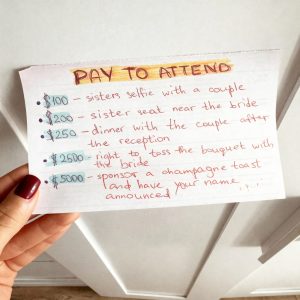My 68-year-old neighbor, Evelyn, has lived on Oak Avenue longer than most of us.
Everyone knows her — she’s warm, generous, the kind of person the whole block adores.
A few years back, her husband passed, and Evelyn’s been living alone since. She kept the garden he planted, the swing on the porch, the kettle always ready for visitors.
Then, a few weeks ago, her nephew Derek turned up — a man in his mid-thirties who’d lived his life elsewhere and never bothered with family. He said he was “going through a rough patch,” and Evelyn, who sees the good in everyone, took him in.
At first we were glad she had company. But Derek turned her quiet home into chaos: loud parties, blaring music, strangers sleeping on the sofa. Every morning I’d watch Evelyn sweep the porch, picking up beer cans and confetti from the night before, her hands trembling as she tried to restore the peace Derek ruined.
A few days later, Evelyn fell ill. The ambulance took her to hospital for several days. Derek stayed behind.
The next morning, the neighborhood woke to the roar of heavy machinery. We ran outside and stopped dead.
Derek was standing in Evelyn’s yard, barking orders as workers ripped out the roses, the lavender, even the old apple tree she and her husband had planted the year their daughter was born. That tree was fifteen years old — it held birthdays, afternoons, whispered secrets. Now it lay half upended.
He grinned at us. *“I’m making this place useful,”* he said. *“I’m putting in a pool — my friends are going to flip when they see what I’ve done.”*
Something in me snapped. The garden wasn’t landscaping; it was memory.
That afternoon, the neighbors gathered on the sidewalk. We looked at the excavator, at the gaping hole, at Evelyn’s roses scattered like confetti. We looked at Derek, smashing the past for a backyard spectacle.
My jaw clenched. I could feel the whole street bristle around me.
We didn’t go back inside. We didn’t leave him to it.
We decided it was time to teach him a lesson.
We decided it was time to teach him a lesson.
That evening, while Derek was out drinking with his friends, we gathered. Six neighbors, sleeves rolled up, armed with cameras, printouts, and a plan.
First, we called the city inspector. It turned out Derek had filed no permits, no permission for demolition, nothing for construction. What he was doing wasn’t just reckless—it was illegal.
By morning, two inspectors and a police officer stood in Evelyn’s yard. Derek stumbled out of the house, sunglasses crooked, still reeking of alcohol.
*”What the hell is this?”* he slurred.
The inspector gestured to the gaping hole. *“This is destruction of private property and unpermitted construction. You’re done here.”*
*”You can’t do this! This is my aunt’s house!”* Derek barked.
That’s when Evelyn’s best friend, Mrs. Rivera, stepped forward, holding Evelyn’s signed medical proxy and property documents. Her voice trembled with righteous fury:
*”No, Derek. This is Evelyn’s home. And you’re nothing more than an intruder tearing it apart. You don’t get to decide anything here.”*
The officer’s hand closed on Derek’s arm. *“Sir, you need to come with us.”*
Neighbors clapped as Derek was led away, shouting, *“You’ll regret this! I was just trying to improve it!”*
That afternoon, we replanted what we could—roses returned to the soil, the earth smoothed where the apple tree once stood. We promised Evelyn’s garden would bloom again.
When Evelyn came home from the hospital a week later, she stepped onto her porch and froze at the sight of her neighbors waiting with flowers and soil-stained hands.
Her voice broke: *“You saved my home… you saved his memory.”*
We hugged her, and I whispered, *“No, Evelyn. We just protected what was already yours.”*
And as she looked at the garden, battered but alive, tears filled her eyes. Because Derek had tried to erase love with greed—
But the neighborhood made sure love won.





